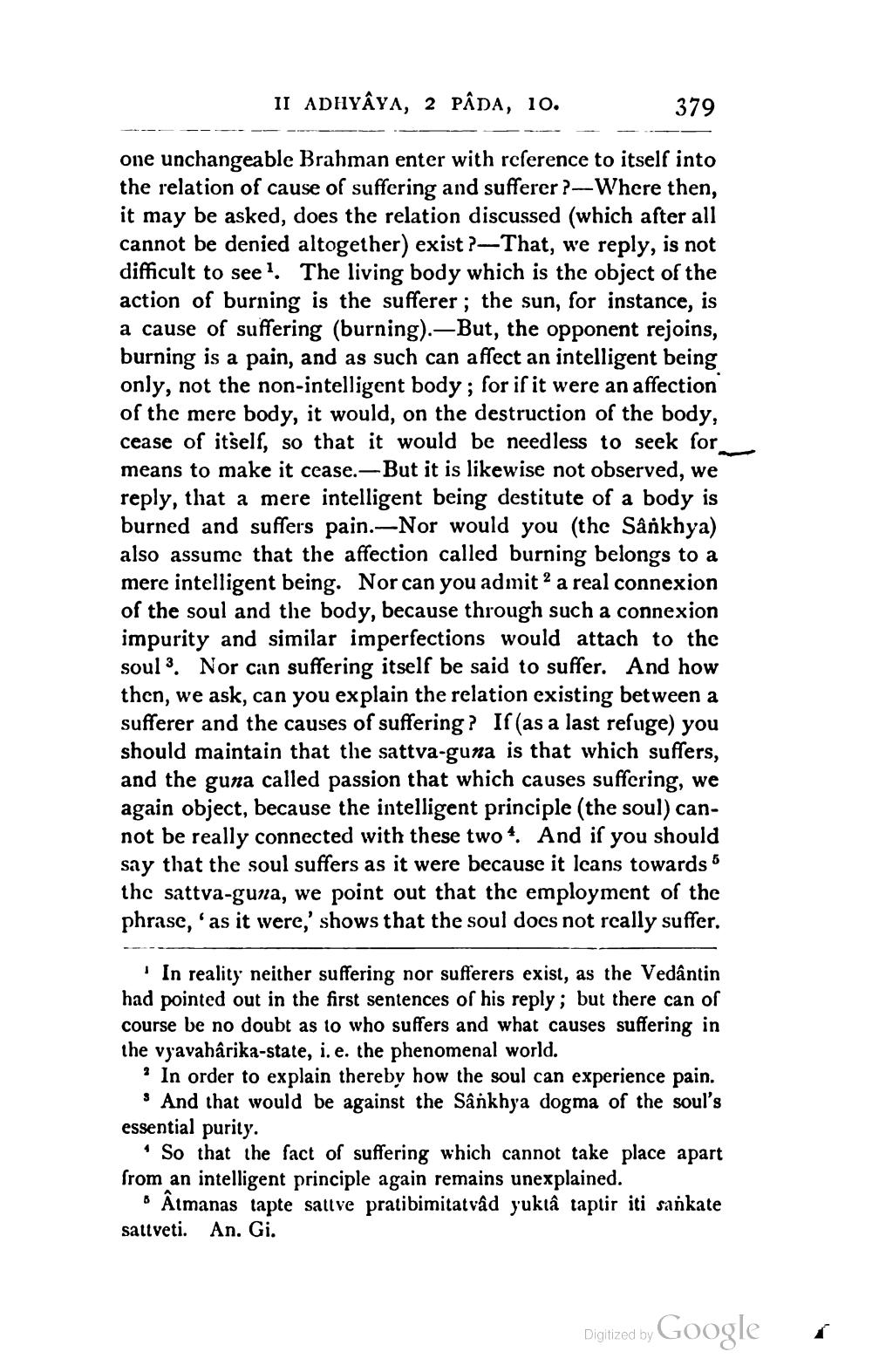________________
II ADHYAYA, 2 PÂDA, 10.
379
--
-
-
----
one unchangeable Brahman enter with reference to itself into the relation of cause of suffering and sufferer ?—Where then, it may be asked, does the relation discussed (which after all cannot be denied altogether) exist?- That, we reply, is not difficult to see. The living body which is the object of the action of burning is the sufferer; the sun, for instance, is a cause of suffering (burning).—But, the opponent rejoins, burning is a pain, and as such can affect an intelligent being only, not the non-intelligent body; for if it were an affection of the mere body, it would, on the destruction of the body, cease of itself, so that it would be needless to seek for means to make it cease.—But it is likewise not observed, we reply, that a mere intelligent being destitute of a body is burned and suffers pain.—Nor would you (the Sankhya) also assume that the affection called burning belongs to a mere intelligent being. Nor can you admit a real connexion of the soul and the body, because through such a connexion impurity and similar imperfections would attach to the soul?. Nor can suffering itself be said to suffer. And how then, we ask, can you explain the relation existing between a sufferer and the causes of suffering? If (as a last refuge) you should maintain that the sattva-guna is that which suffers, and the guna called passion that which causes suffering, we again object, because the intelligent principle (the soul) cannot be really connected with these two 4. And if you should say that the soul suffers as it were because it lcans towards 5 the sattva-guna, we point out that the employment of the phrase, as it were,' shows that the soul does not really suffer.
In reality neither suffering nor sufferers exist, as the Vedântin had pointed out in the first sentences of his reply; but there can of course be no doubt as to who suffers and what causes suffering in the vyavahârika-state, i.e. the phenomenal world.
. In order to explain thereby how the soul can experience pain.
. And that would be against the Sankhya dogma of the soul's essential purity.
So that the fact of suffering which cannot take place apart from an intelligent principle again remains unexplained.
Almanas tapte sattve pratibimitatvâd yuklâ taptir iti sankate sattveti. An. Gi.
Digitized by Google
í




